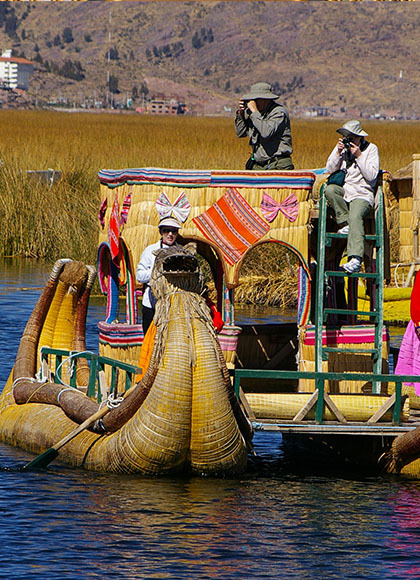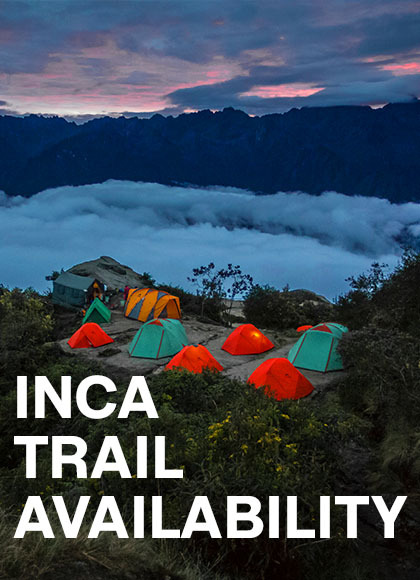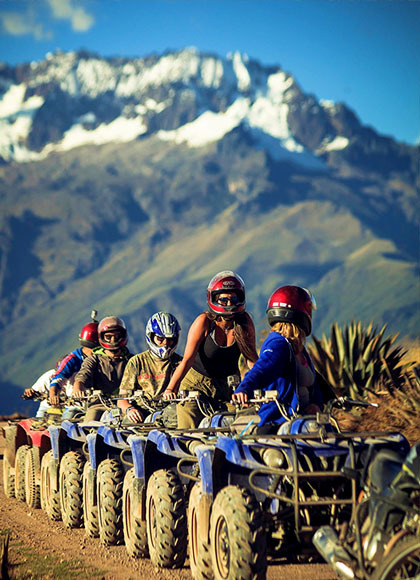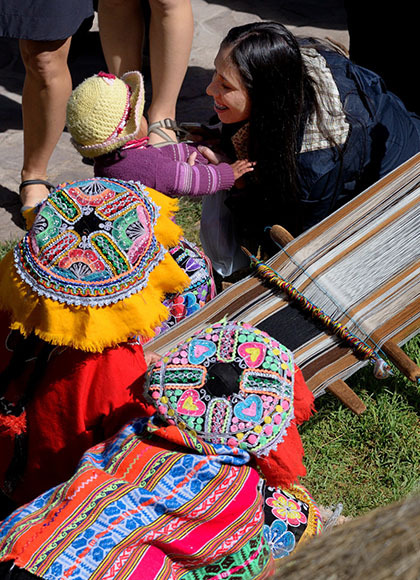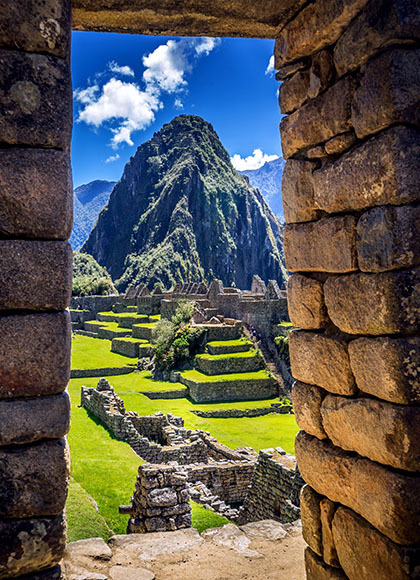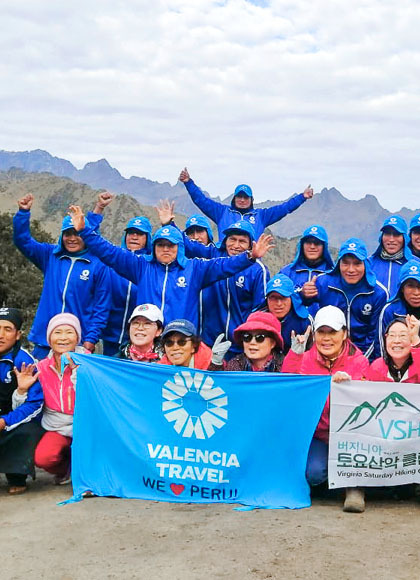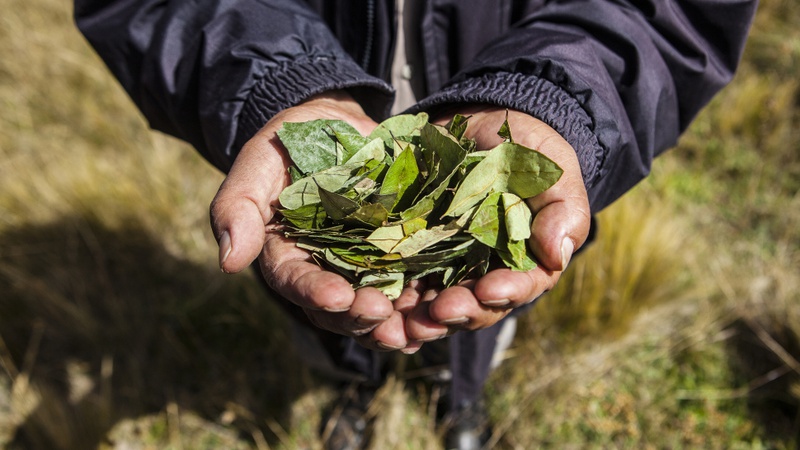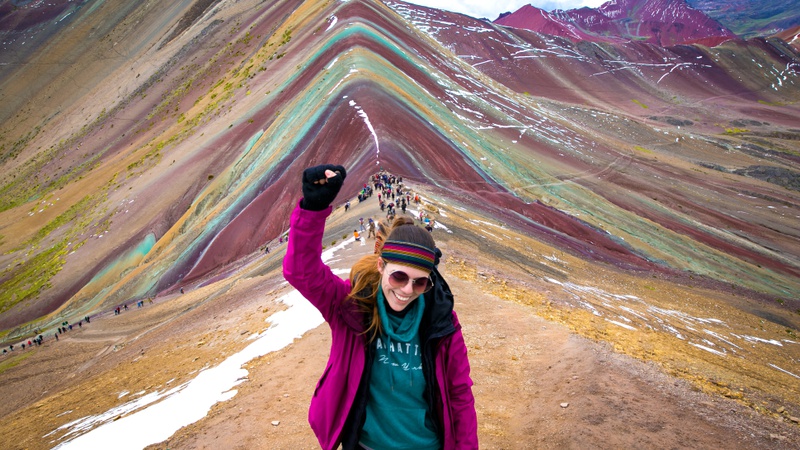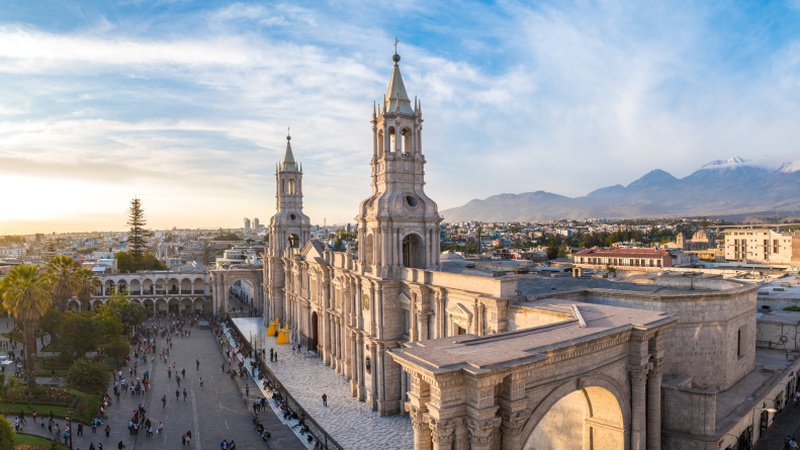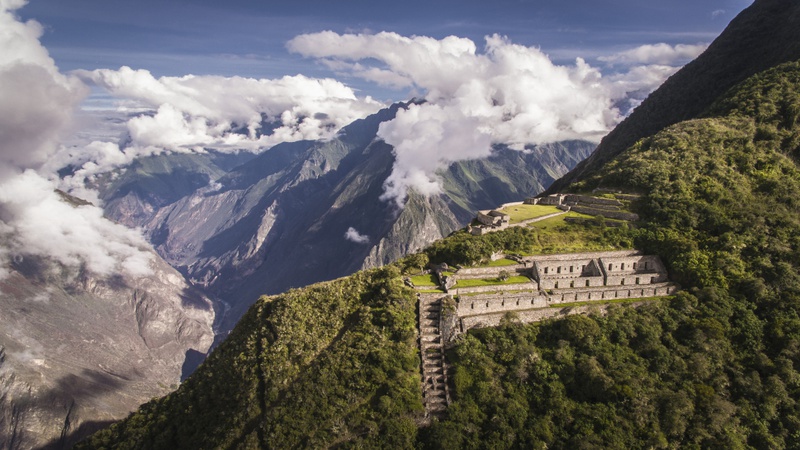
Written by:Claire Dean
Published: 10-07-2023
For anyone who has ever trekked in the Cusco region, or hiked the world-famous Inca Trail to Machu Picchu, you will have realized that the porters are a fundamental part of any trekking team. Without the hard-working porters and their smiling faces each day, the trekking experience would not be nearly as incredible for our clients. Their underrated importance led to the government deciding to protect their rights and they decreed a new law for Inca Trail companies. The exploitation of the porters of the Inca trail is nothing new. For decades, many people have echoed the porters’ struggle to be entitled to better working conditions. The new law 31614 or "Porter’s law", approved by the Peruvian Congress and signed by the Peruvian president Pedro Castillo, appears to address some of the many issues these wonderful people face.
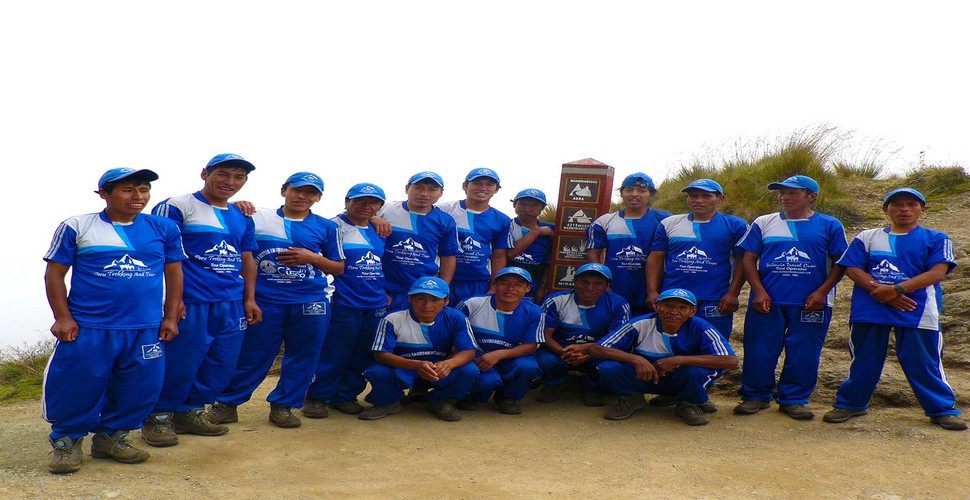
Valencia Travel´s Team of Porters
History
For those who haven’t heard about the mistreatment of porters, an overwhelming majority of these hard-working men and women complain about carrying excessive weight on their backs way beyond the 20 kg limit. They receive poor salaries, lack food, proper sleeping conditions, and inadequate equipment to haul the necessary supplies for tourists to accomplish this world-famous trek. Despite the good intentions behind the conception of this new law, many questions have arisen regarding the implementation of such a law and its actual effects on porters, tourists, and tour operators alike.
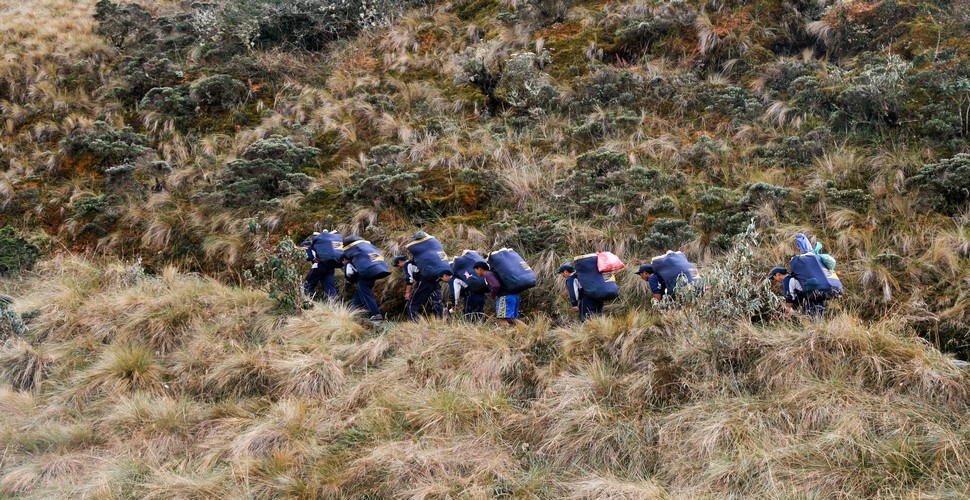
Team of Porters on The Inca Trail
What Is the New Law, And How Is It Different from the Previous Law?
On a fundamental level, some aspects of the previous law have remained, such as the weight limits that porters carry, which are 20kg (45 lbs) for men and 15kg (34 lbs) for women. Also, tour operators are obliged to provide porters with adequate food and appropriate camping gear, such as suitable clothing for the trekking activity, including hiking boots, sleeping pads, and tents.
Most of the porters on the Inca Trail are people from the high Andean areas and, in general, they speak Quechua and Spanish. They are people who work in the field, but when the high season arrives they do this work to increase their income. Some others dedicate themselves completely to this work.
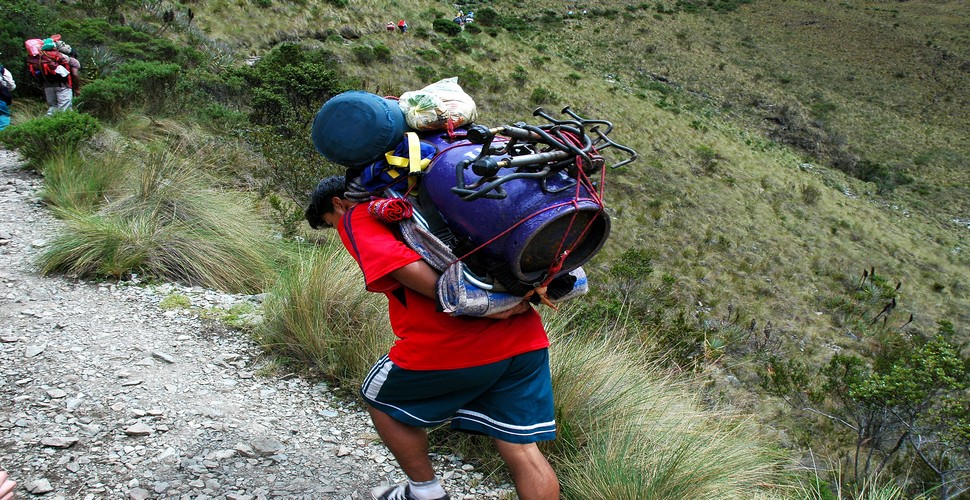
Gas Cylinder has to be Carried
On other alternative trekking trails in the region, pack animals are usually used to carry all the equipment, however, on the Inca Trail, the use of mules is prohibited. This is why humans have to carry all the essential camping items and the clients' belongings, using the services of porters. Porters are also responsible for the setting up of the campsite which has to be ready when the trekkers arrive, regardless of what time they leave the checkpoint, which is harder for those carrying more weight, of course. The new law of the Inca Trail Porter stipulates exactly the maximum weight they can carry.
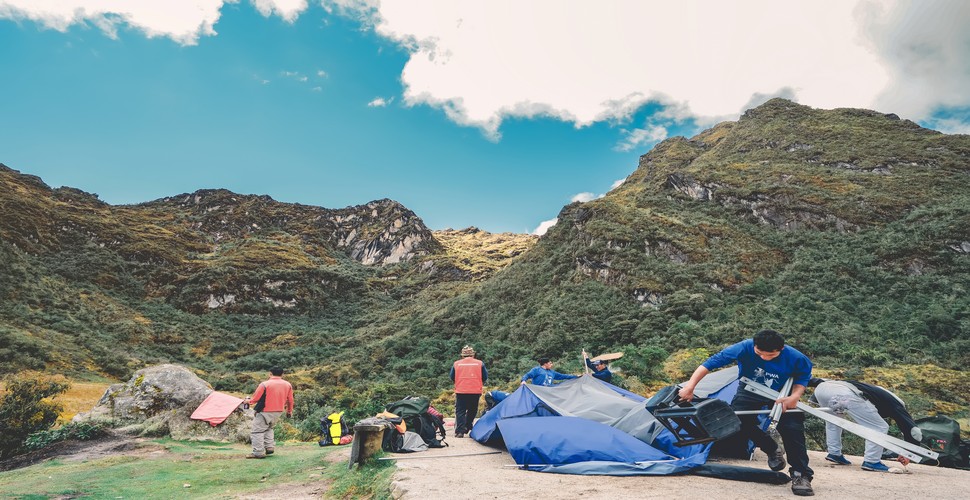
Packing up Camp
Obviously knowing the route perfectly and having very good physical condition, they can make the walk at a brisk pace and without major inconvenience. In some cases, (depending on the company) they even do running sections to be able to get ahead and do their job on time.
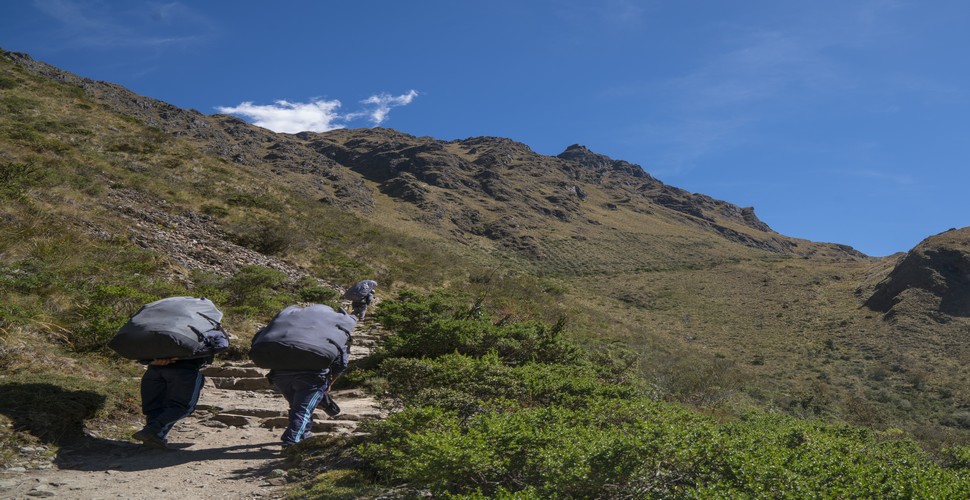
A Lot is Uphill
What´s New
The new law requires that the new salary that porters make for an entire four-day trip is 140 USD, which is more than double what they earn in 2022. Also, Tour operators must provide porters with a health insurance plan and deliver an accident insurance policy. In addition, the Peruvian government agrees to build shelters for porters to sleep on the trail and will implement an area of “rapid assistance” in the event of accidents, with permanent health personnel on hand at all times. Furthermore, porters must have 5 days rest before they start another trek, and 30% of the resources collected by the Ministry of Culture and SERNANP, are assigned to the Regional Federation of Inca Trail Porters “Daniel Estrada Pérez” to promote and encourage tourist activity, as well as to create a solidarity fund for porters to improve their working and social conditions. Previously, porters often slept outside, in the bathrooms, or in the dining tents without adequate sleeping arrangements and are especially harsh due to the high elevations along the Inca Trail.
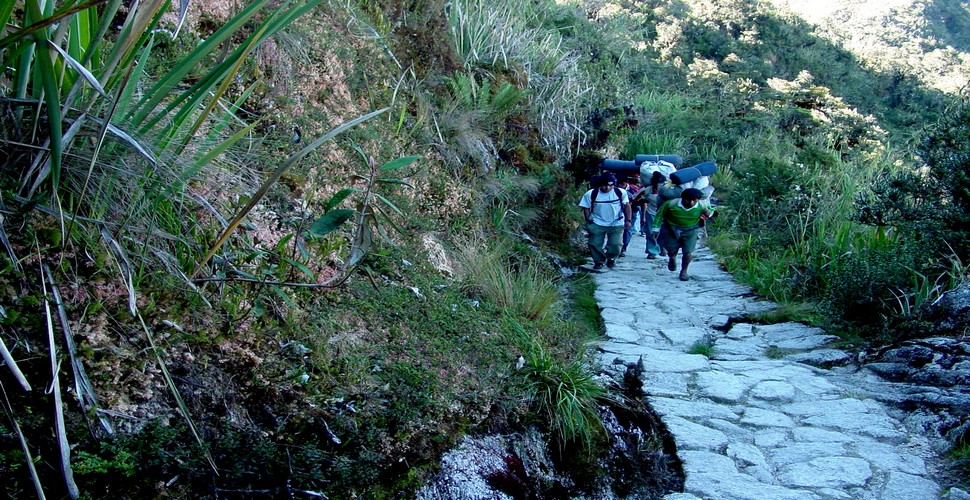
Small Team of Porters
Current Issues
The new law does not consider the inclusion of women nor establish a mandatory quota of women to increase their participation in this industry. The number of women porters has been on the increase recently with equal opportunities being a real issue.
Also, there should be a clear path for enforcing this law to keep the ruling body accountable. SUNAFIL, is a well know government institution with a somewhat dubious reputation regarding the enforcement of fair labor practices. The current law protecting porters has been in place since 2003. Despite the differences between the new and old laws, the problem has always been how to enforce them properly.
Some unscrupulous tour operators who had no concerns about their porters, and who were just operating the trail for financial reasons were found to be offering bribes to park rangers, which led to the important question of how to operate a sustainable model on the Inca trail and manage the law for the benefit of the porters. Moreover, The Porter’s Federation doesn’t have a say in how operators are held accountable, which substantially limits their ability to find meaningful change. Under these circumstances, what happened before will likely happen again as no clear path to enforce the new law has been established.
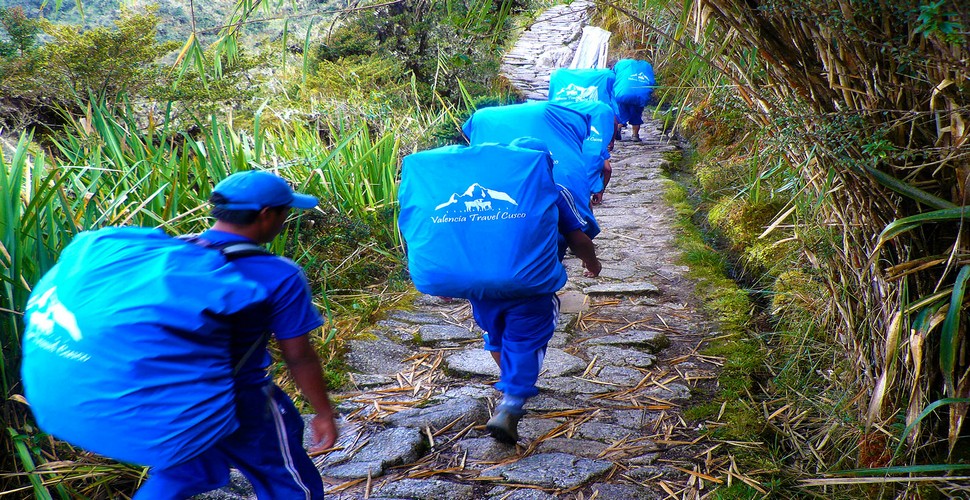
Hard Working Valencia Travel Porters
It is worth noting that the exploitative conditions of Inca Trail porters were caused mainly by irresponsible tour operators trying to maximize their profits and corrupt government officials in charge of enforcing the law turning a blind eye to these horrible conditions.
Some dishonest tour operators make sure porters go across the first checkpoint carrying the maximum weight allowed. However, using several tricks to ‘avoid being caught,’; they force the porters to carry extra weight as soon as they reach the first campsite.
This problem is not exclusive to tour agencies. Corruption runs rampant in almost every Peruvian public institution. According to a survey made in 2022, 80% of people believe corruption is the main problem in Peru. The numbers don’t lie; corruption has plagued even the highest spheres of power in Peru. Three out of four ex-Peruvian presidents are in jail, expecting extradition or facing criminal charges for corruption, while one other committed suicide before getting arrested for the same reasons.
In June 2022, a group of Peru’s Ministry of Culture employees (locally known as GERCETUR), including the Machu Picchu Park director, was sacked after protests demanding their resignation, took place in Machu Picchu. As always, corruption was at the center of it. Later, authorities discovered that people were buying Machu Picchu tickets to resell at higher prices, all with the collaboration of workers inside this Peruvian institution.
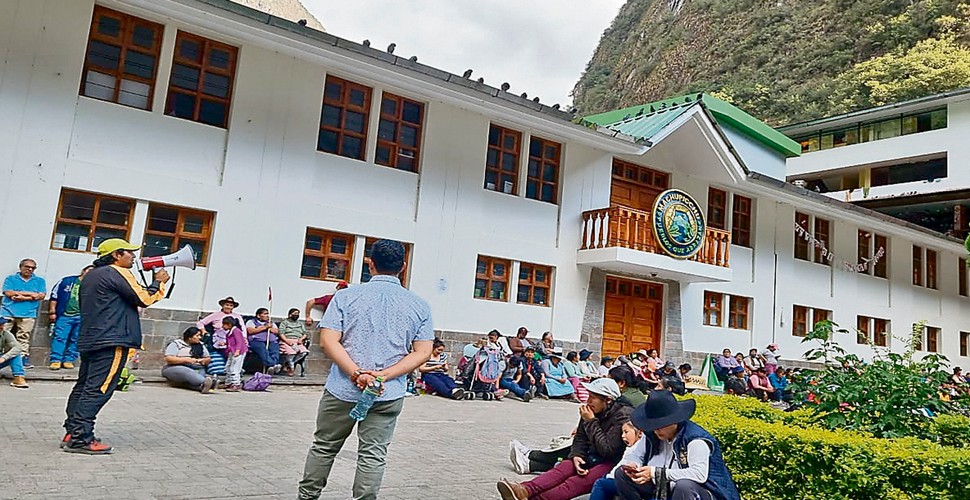
Protest at The Ministry of Culture, Aguas Calientes
The Real Problem
Honest tour operators have always experienced a conflict between the service they provide tourists and the number of porters available to deliver that. It has always been a complex issue to deal with. The park laws regulate the amount of weight and porters allowed on the Inca trail, which limits the array of things provided for tourists.
Since 2003, tour operators have substantially improved their clients’ services to stay competitive. For instance, they provide them with several free unnecessary excessive goodies, such as portable bathrooms, showers, cooking classes, and even free porters to carry their personal belongings. All of it has only exacerbated the working conditions of the porters as they have to transport these things while being deprived of the essential items to work decently, such as food, shelter, and proper bags to carry stuff.
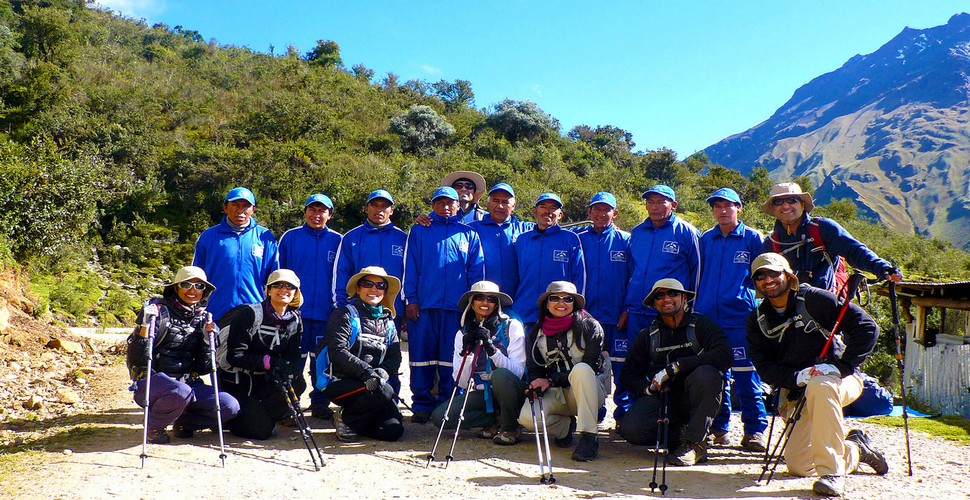
Valencia Travel Porters with a Group
Will the New Law Work?
Hopefully, yes, although a great majority of porters believe that their ability to work freely is threatened by a clause in the law mandating that they rest for five days after every trip.
The new law does not create the conditions for more women to be included in this industry, as it is much cheaper to hire men only to do this job. Women porters carry 5kg less than men, so to carry 60kg, tour operators prefer to hire 3 men instead of 4 women. Hiring women involves higher costs, more salaries, food, entrance fees, insurance, and other expenses.
The new law may work effectively for the first few months, but once the dust settles, things are likely to go back to the same corruptive ways as before and might even get worse for porters due to the levels of corruption in Peru.
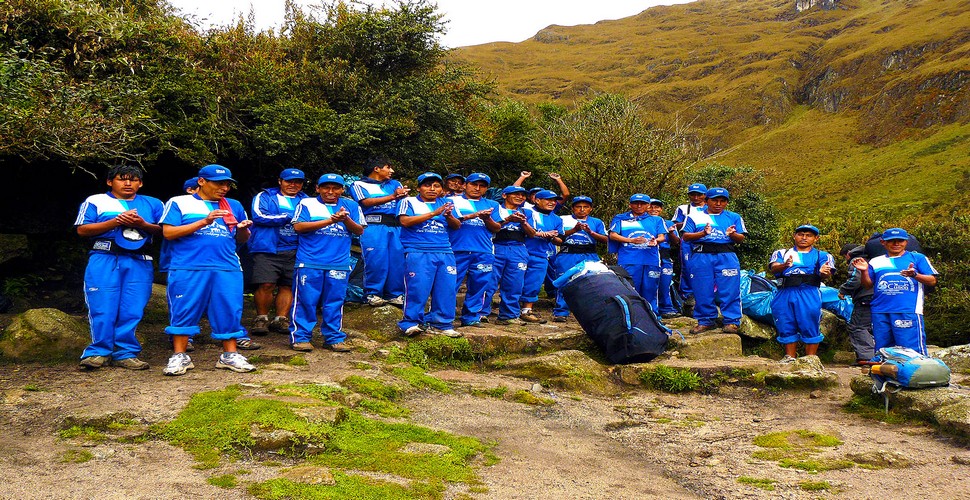
Porter Team
How Will This Affect Trekkers?
The bottom line is that the new law will increase the operational costs of the Inca Trail by 200% to 300% compared to those of 2022. Also, the prices of tours on the Inca Trail will increase by up to 50% or 100% more than the 2022 prices. It is improbable that operators will deliver tours without raising prices. Some tour operators are already in conversations with clients to voluntarily agree to pay the extra costs for trips they already signed up for, implementing this law will mean that some trekkers will likely look for cheaper alternatives, while others might withdraw their requests to hike on the Inca Trail. The problem with looking for cheaper alternatives is that it perpetuates why porters have fought for so long to get a new law because the only way to implement cheaper alternatives will force the porters to illegally carry excess weight.
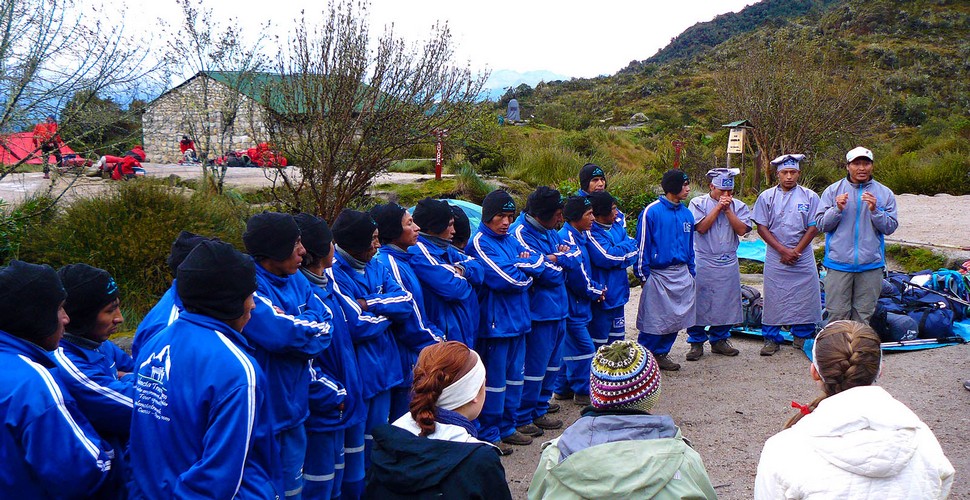
Porter Ceremony on The Inca Trail
The Chance for a Sustainable and Ethical Trek, and The Role Of Trekkers
Now, more than ever, hiking on the Inca Trail provides a chance for hikers to play a positive fundamental role concerning sustainable travel. First, by choosing an ethical tour operator like Valencia Travel and, secondly, by holding tour operators accountable for their labor practices. The fact that trekkers will pay more for these Inca trail tours gives them an excellent opportunity to demand that porters receive fair and decent treatment and that tour operators treat them with dignity and respect.
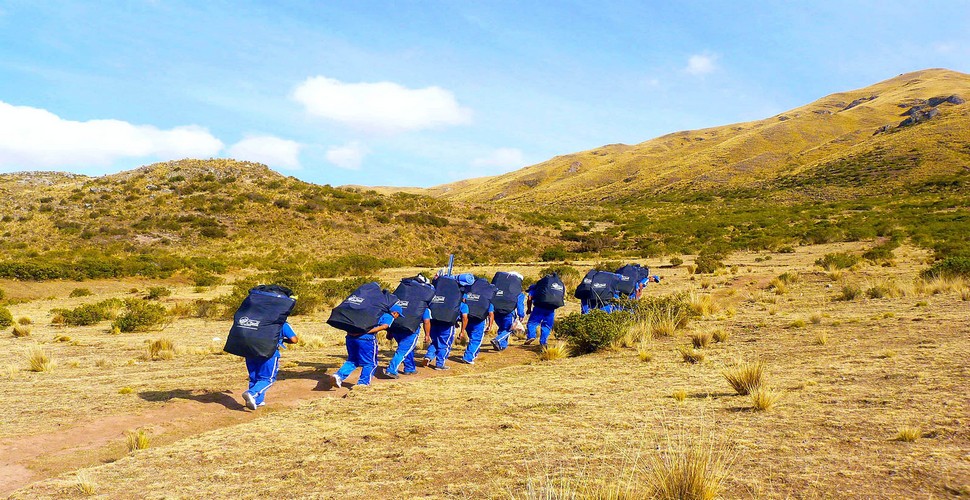
Valencia Travel Porters
Our View
Leaving aside any inconsistencies with the new Porter's law, our values will always be aimed at being a responsible and sustainable tourism agency, where we look after not only the well-being of tourists but also each one of the people who are part of our team. Any positive action, be it a law or an initiative to empower the porters, coming from the Peruvian government or any private organization should be welcome and supported by all involved in the travel industry. However, this will only happen when laws consider the opinion and consent of the Inca Trail porter’s leadership and when they are given the power to enforce these laws. Without that, they are deprived of all means to safeguard their interests, especially when they have to confront the power of unethical powerful tour operators and corrupt government officials.
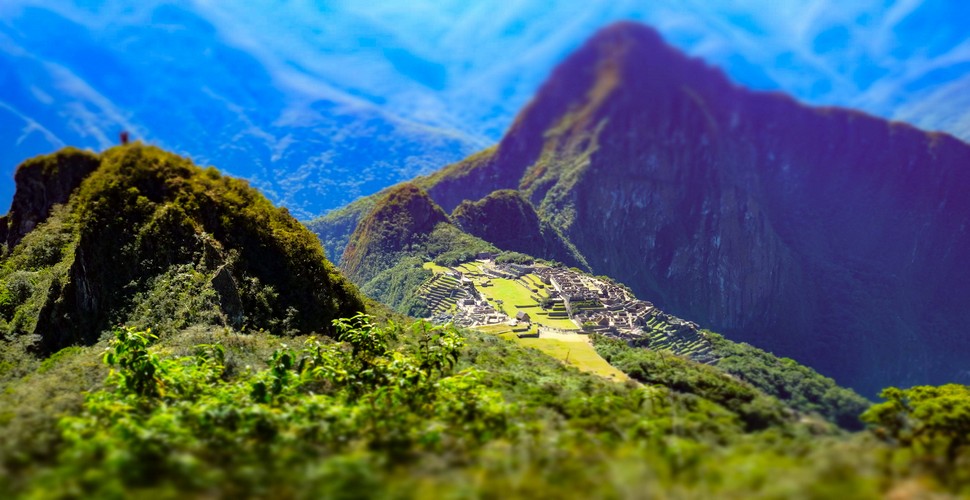
Machu Picchu
For Valencia Travel, the porters are an integral and vital part of our team, and without them, we would not be able to operate to the high standard we offer our clients. This new law may be good for the porters, but only time will tell. In the meantime, it’s up to trekkers to book with ethical and responsible tour operators like us and keep an eye on how porters are treated to ensure we don’t lose the hard-earned momentum we’ve gained. Valencia Travel will continue to offer the best services to our porters and comply with the law at all times, to be the ethical and responsible operators for which we are well-known, without affecting the excellent service that our trekkers receive along their trek. Find out more here.

